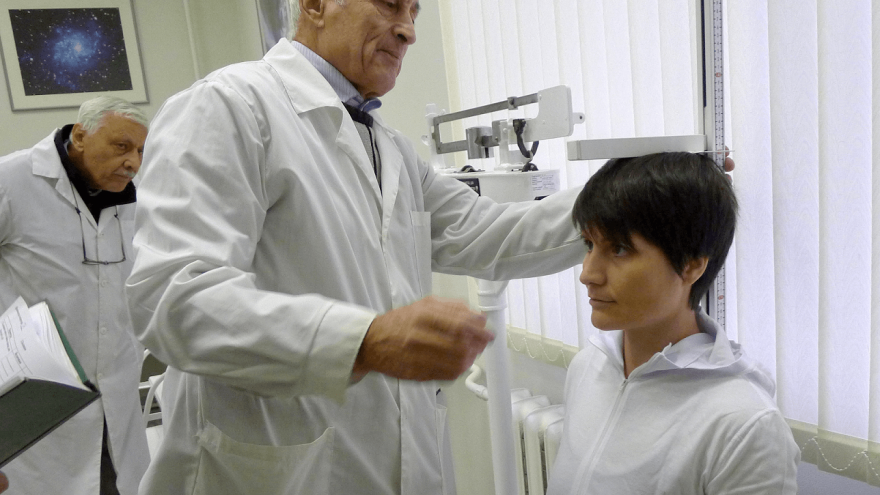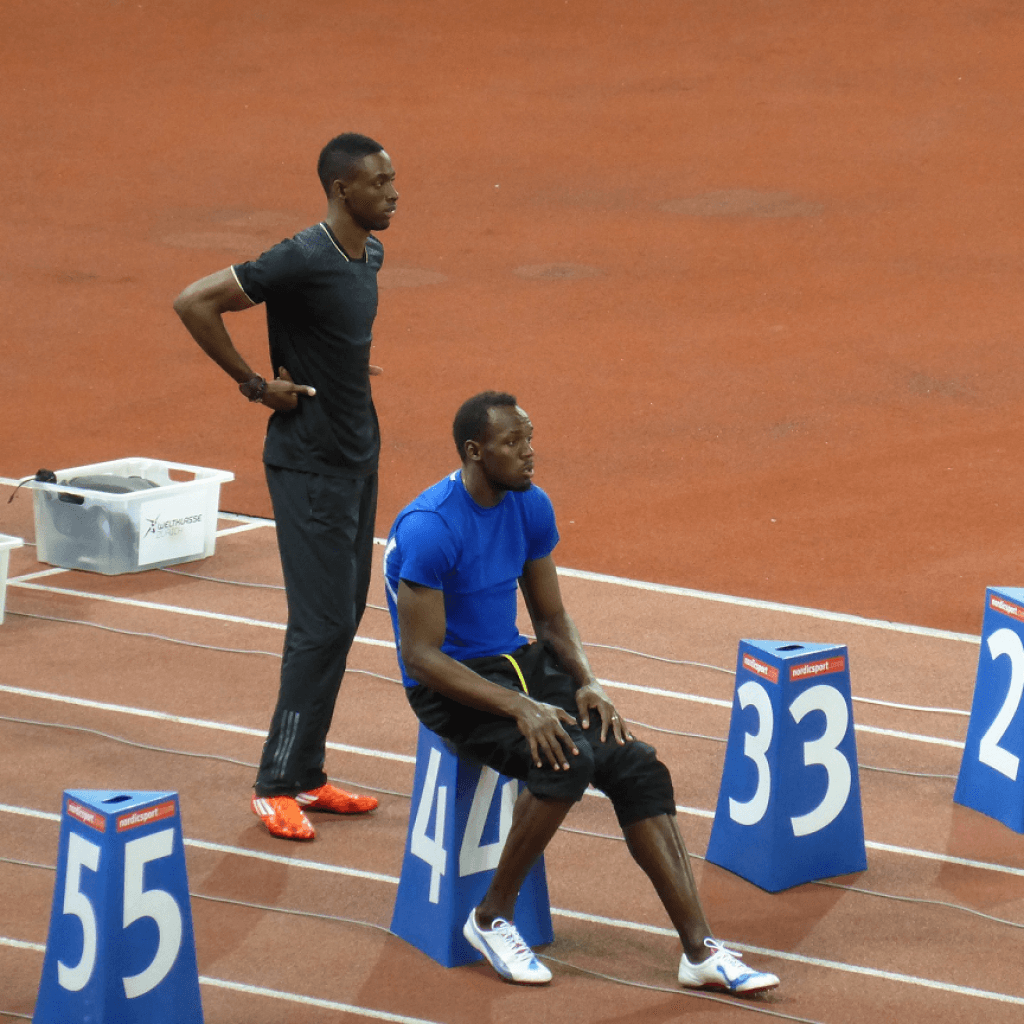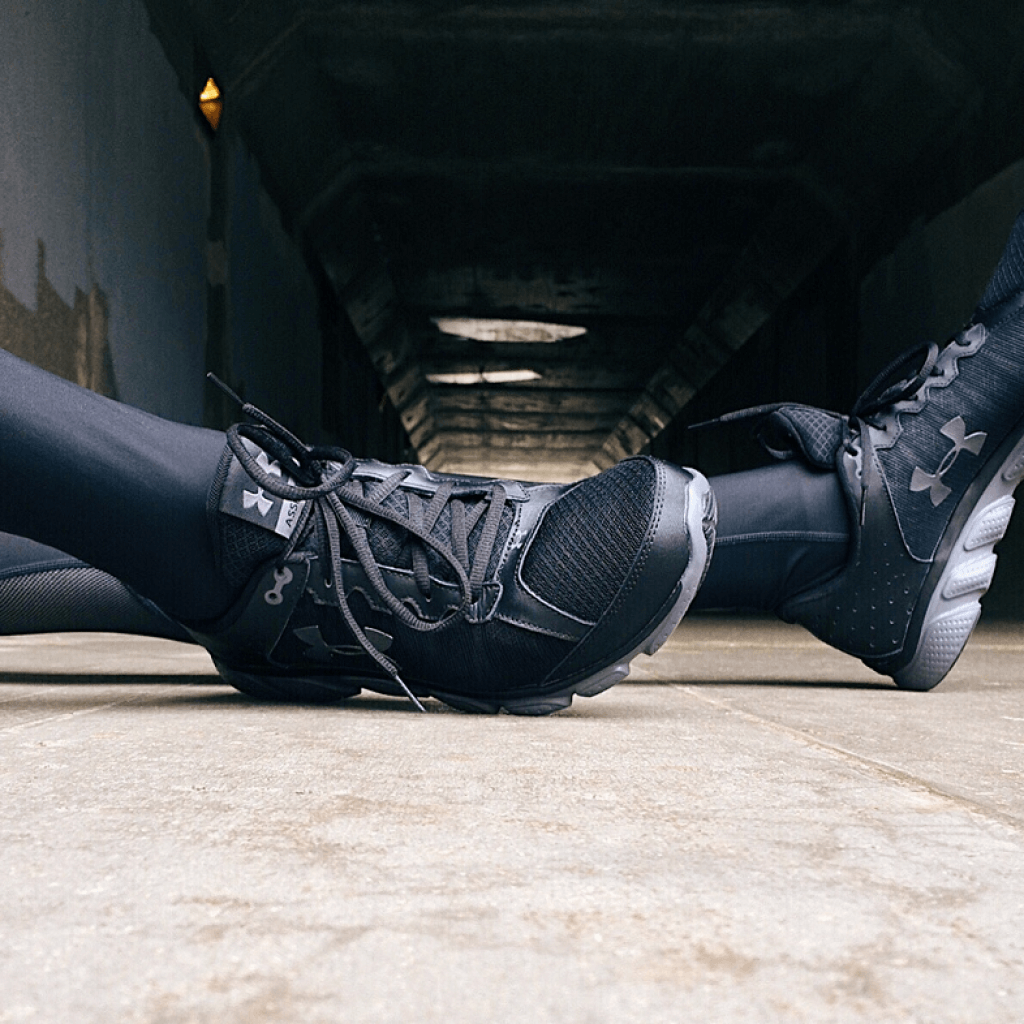Is Your Height Preventing You from Becoming a Faster Runner?

While the world’s top running sprinters have gotten taller, heavier and more slender over the past 100 years, the top marathoners appear to be shrinking. Because while Usain Bolt was busy sprinting himself into the record books with his 6 ft 5 in frame, a 2013 study published in the Journal of Sports Sciences concluded that the average height of the world’s top 100 male marathoners decreased from 5’8.1″ to 5’6.9″ between 1990 and 2011.

So does this proported phenomenon, coupled with the fact that marathon winning times have become faster and faster over time, mean that taller distance runners stand no chance? Apparently not. Because whilst the list of marathon champions who are taller than 6 feet is arguably a short one, the running feats of these tall champions remain admirable.
The Tall Champions
In 2015, Scott Douglas published a list of present and past marathon champions who are at least 6 ft tall. This list, which even includes two female runners, also includes the following tall marathon greats:
- Jack Bacheler, who stands 6 ft 7 in tall and finished 9th in the 1972 Olympic marathon
- Robert Cheruiyot, who at 6 ft 3 in tall has four Boston Marathon and one Chicago Marathon title under his belt
- Don Kardong, who, with his 6 ft 3 in frame, ended fourth in the 1976 Olympic marathon
- Rod Dixon, is 6 ft 1 in tall and won the 1983 New York City Marathon
- Jason Hartmann, who also measures 6 ft 3 in and won the 2009 Twin Cities Marathon
- Dennis Kimetto, the current world marathon record holder, who is exactly 6 ft tall
- Former world marathon record holder, Wilson Kipsang, who also measures exactly 6 ft
So why are tall distance running champions so few and far between? Does their height really put them at a disadvantage when it comes to running, or is there another explanation for this phenomenon?
Taller Runners and Weight
Since mass has been found to increase more rapidly than height, a distance runner who is 10% taller than his or her competitor, will generally weigh approximately 30% more. Some therefore argue that taller – and proportionally heavier – distance runners require more energy to run, and therefore also tire sooner than their shorter (and lighter) counterparts. Which obviously puts taller runners at a disadvantage when it comes to clocking distance records, right?

Not necessarily. Some experts argue that taller, proportionally heavier runners also have proportionally bigger muscles, which can store more fuel and generate more energy. Which should therefore even out this perceived tendency to tire sooner. So which other factors could then be responsible for the relatively short list of tall marathon champions?
Taller Runners and Heat Dissipation
One such possible factor is the production of heat. Since taller (and bigger) runners have to haul more weight around while running, they also produce more heat. And while the heat produced is proportional to the athlete’s mass, the ability to get rid of this heat is proportional to the athlete’s body’s surface area. And since body mass increases more rapidly than surface area with an increase in an athlete’s height, effectively dissipating heat may be more of an issue for taller runners. Meaning that in order to prevent overheating, taller runners’ bodies react by slowing down ever so slightly.
Taller Runners and Biomechanical Impact Forces
Another potential contributing factor may be the fact that body weight increases more rapidly than foot size in taller runners. In other words, foot size is roughly proportional to height, not weight. Which, in turn, means that taller runners, who inadvertently land with greater impact, may suffer more biomechanical issues than their lighter counterparts in their quest for marathon glory.

The Rarity of Taller Distance Runners
And while the factors above all provide reasonable potential explanations for the short list of tall distance running champions, some feel that the list itself may be the problem. How so? Sure, marathon champions measuring 6 ft and above are few and far between. But aren’t individuals of that height relatively scarce to begin with?
Do What You Love, Regardless of Your Height
So while it is clear that taller distance runners may be at some disadvantage when it comes to certain aspects of running, this does not mean that tall individuals shouldn’t run. Nor does it mean that parents should push their shorter kids to run if they show no interest in it, or discourage their taller kids from doing what they love. Short or tall, running benefits those who are consistent. And since the majority of us run for our pleasure and for the sake of reaping these benefits, there’s no reason at all to sit out (unless otherwise advised by a physician, of course). Just be clever about it and listen to your body.

Having said that, don’t forget that, short as it may be, there is a list of tall marathon champions. Which means that, disadvantage or no disadvantage, tall marathoners are able to triumph. Or, in the words of the late, great Bill Bowerman: “Sometimes what matters is not what dog is in the fight, but how much fight is in the dog”.
Featured Image Credit: “Measuring height” by Samantha Christoforetti. Licensed under CC BY 2.0.
Sources
- , Is height really a disadvantage in marathons?, Online publication
- , Revealed: How world's top athletes have become taller and bigger (and faster) over past 100 years, Online publication
- , Bigger is better, except when it's not, Online publication
- , Great marathoners over 6 feet tall are rare, Online publication
- , The evolution of speed, size and shape in modern athletics, Scientific journal
- , The incredible shrinking marathoner, Online publication
- , Marathon progress: demography, morphology and environment, Scientific journal
Latest Articles
 Is Running on a Treadmill Easier Than Running Outside?Runners have their own preferences, whether it is treadmill running, running outside on the road, or exploring trails. So...
Is Running on a Treadmill Easier Than Running Outside?Runners have their own preferences, whether it is treadmill running, running outside on the road, or exploring trails. So... Is It OK to Use Trail Running Shoes on the Road?While trail running shoes can be used on roads, especially in situations where a runner encounters mixed terrains or pref...
Is It OK to Use Trail Running Shoes on the Road?While trail running shoes can be used on roads, especially in situations where a runner encounters mixed terrains or pref... How to Fix Sore Quads After Running?Rest, ice, gentle stretching, and over-the-counter pain relievers can help soothe sore quads after running. Also, ensure ...
How to Fix Sore Quads After Running?Rest, ice, gentle stretching, and over-the-counter pain relievers can help soothe sore quads after running. Also, ensure ... 10 Fruits With The Most Electrolytes to Replace Sports DrinksThese fruits are high in electrolytes such as potassium, magnesium, and calcium, essential for hydration, muscle function...
10 Fruits With The Most Electrolytes to Replace Sports DrinksThese fruits are high in electrolytes such as potassium, magnesium, and calcium, essential for hydration, muscle function...

